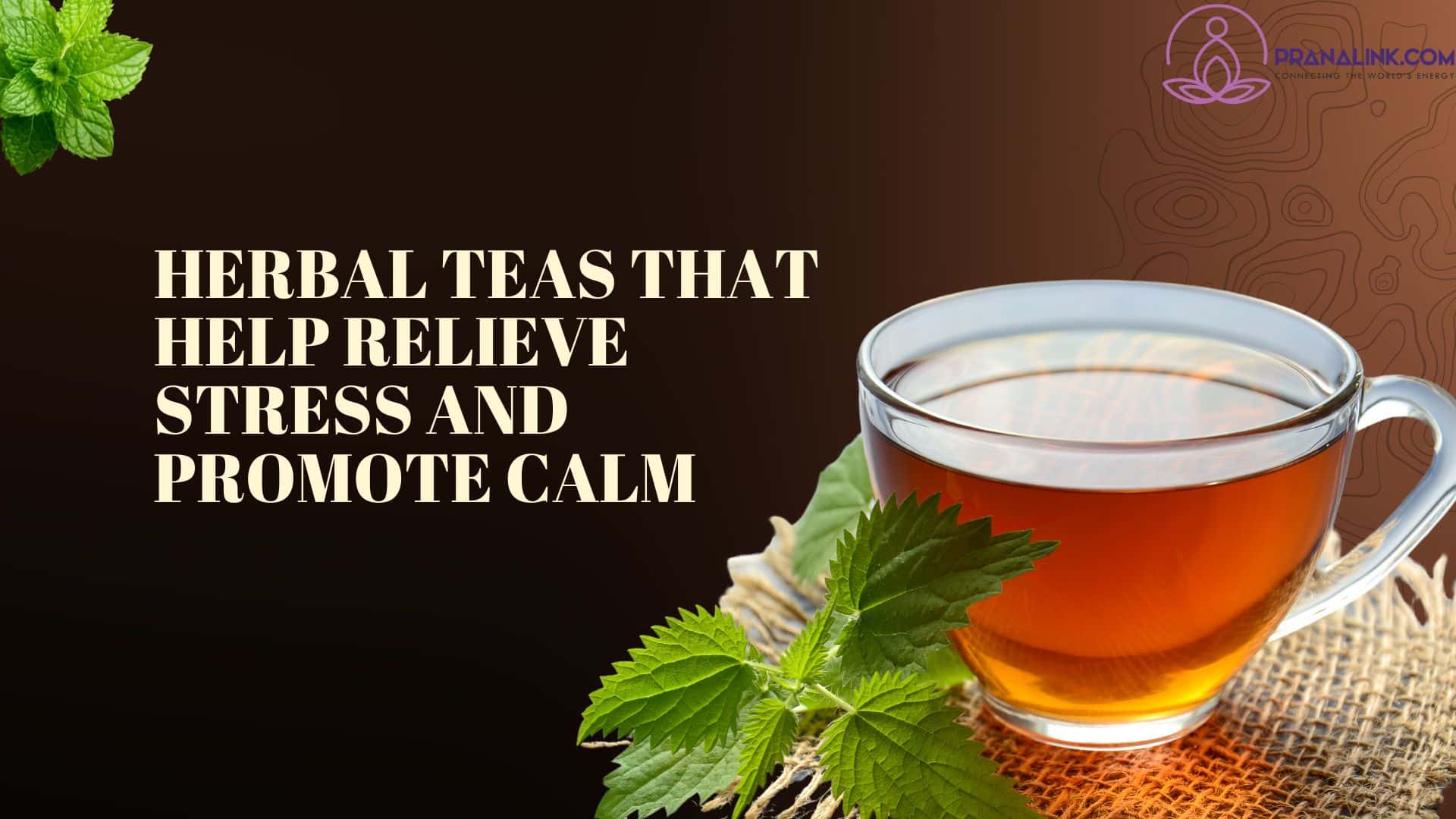5 Herbal Teas That Help Relieve Stress and Promote Calm Leave a comment
In the increasingly busy world, it is practically impossible to live without stress. Whether it is work deadlines, personal commitments, or day-to-day uncertainty, it is more vital than ever before to find ways to relax in a natural fashion. Herbal tea is one of the most relaxing treatments one may resort to. Herbal teas have long been part of traditional medicine as a means to settle the mind and curb anxiety levels, as well as promote overall well-being. As opposed to caffeinated beverages, they provide a relaxing, natural means of relaxation.
Best herbal teas that can relieve stress and bring on a calm feeling.
Chamomile Tea: The old-fashioned weight reducer
One already well-known green herbal tea is hawthorn tea, standard for burnout. This flower, resembling the daisy, is a centuries-old natural treatment for anxiety, insomnia, and stress. Hamamelis: Apigenin is an antioxidant found in Hamamelis, which binds to brain receptors and has the effect of soothing, like mild sedatives, without adverse effects.
Chamomile tea has the properties of calming down the nervous system, relaxing muscles, and leading to better sleep after bedtime. It is an ideal solution for individuals who have difficulties falling asleep, have troubled sleep, or have an overactive mind before bedtime.
The most favorable time of consumption: Pytri before bedtime, moments of stress.
The magnificent and magical aromatherapy in a cup is Lavender Tea.
Lavender is the most popular fragrance, especially in the form of essential oils and during a bath. However, lavender, as a tea, can have excellent effects when it comes to relieving stress and anxiety. Its faint floral flavor has the capability to relax the body and the mind after a stressful day.
Lavender tea can be used to decrease the heart rate, calm agitation, and mild signs of anxiety. The mellow fragrance alone induces relaxation prior to the initial swallowing.
Minimal time to take: After work when coming down or when meditating.
Lemon balm Tea: Relaxing and Enlivening
Lemon balm is a member of the mint family, and the citrus-like taste of the herb aids in decreasing stress levels and elevating mood. It is said that lemon balm tea can calm anxiety, cause relaxation, and enhance thinking capacities. It is recommended for people who feel overworked or exhausted on a mental level.
It is non-habit forming and safe to be used every day, which is one of the reasons why it is considered very safe compared to other types of medication. It also combines well with other relaxing herbs such as chamomile or lavender to brew a stronger stress reduction recipe.
The best time of the day to drink is in the middle of the day or towards the end of the day when the stress levels are high.
Peppermint Tea: Cooling Soothing to both Body and Mind
Peppermint tea not only tastes refreshing, but it has muscle-relaxing effects as well. Stress can be physical in nature, and sometimes it causes a headache, stomach upset, or stiff muscles. Peppermint adaptogen soothes these symptoms and has a cooling, revitalizing effect.
The muscle-relaxing properties of the menthol in peppermint make it suitable for relieving both mental and physical stress. In addition, the refreshing flavor can relieve the brain and boost concentration.
Best time to use: After a meal or when you feel the need for a refreshing reset.
Passionflower Tea: Nature’s Calling Cards
The tea of passionflower has been used in the treatment of anxiety and insomnia traditionally. It acts by boosting the presence of GABA in the brain- a compound that alleviates brain activity that makes you feel relaxed and calm.
It is particularly helpful to people who have racing thoughts or frequent restlessness or who have trouble falling asleep. Passionflower is an effective alternative to synthetic sleep aids because it is mild.
Best time to take it: In the evenings or before going to bed.
Tips on How to Maximize the Effects of Herbal Teas
Come up with a soothing routine – Keep your focus on relaxation by making your tea in a comfortable, quiet place.
Avoid caffeine supplements – Aim for pure herbal blends that do not contain stimulants in order to truly relieve stress.
Mix it up – Combinations of herbs, such as chamomile, lavender, and lemon balm, may work even better.
Be regular – Sipping herbal tea regularly can help eliminate overall stress with time.
Conclusion
Herbal teas are more than a warm drink; in fact, it is a natural, whole-body approach to relaxation, decreasing stress, and inducing calm. The floral aroma of chamomile and lavender, the rejuvenating boost of peppermint: there is an herbal tea to be served on each of the moods and stressful occasions. This is because making a habit of consuming these teas can help you lead a healthier, more peaceful life- one cup at a time.
FAQs
- Are there any side effects of herbal teas?
Certain herbs can have interactions with other medications and may induce mild allergies. It is advisable that you see a physician in case you develop health conditions. - What herb tea best aids sleep?
Chamomile, passionflower, and lavender are the most efficient teas to help people sleep. - Can tea substitute drugs against anxiety?
Teas are herbal beverages that can supplement relaxation regimes, but should not be used to displace prescribed medicines without endorsement by a medical expert. - What is the most appropriate method of making herbal tea for relaxation?
Add steep fresh or dry herbs to hot (not boiling) water and leave to stand covered 510 minutes and take slowly.


